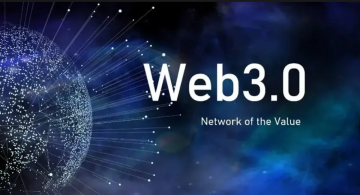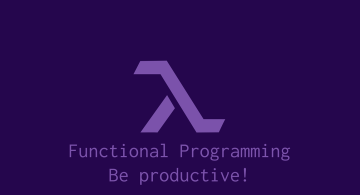ギーク
3 Russian IT-companies you should hear about
irina

If you’re interested in IT or Russia, or both, this blog post is for you!
For today’s story I’ve picked three Russian IT-companies – Yandex, Kaspersky Lab and JetBrains – to introduce you to some aspects of Russian IT-industry. All three companies are from different IT segments (web search and related services, cyber security, software development), and each of them has own distinguished products I’d like to tell about.
Here they are.
Yandex

Yandex is a Russian IT-corporation, originally focused on web search and Internet-related services.
Started in 1997 from yandex.ru search engine, the company grew up into one of Russian biggest IT-corporations with more than 7000 employees in 9 countries, and almost 70 services provided.
According to Alexa Traffic Ranks, yandex.ru is the most popular Russian website and the 23rd most visited worldwide (state on September 4th, 2018).
Here are some of the company’s products.
Yandex Search
Yandex’s core product – Yandex Search, is the most popular search engine in Russia. To improve search efficiency, Yandex employs its own language processing tools and search optimization technologies.
One of such technologies, MatrixNet, is a machine learning algorithm, aimed to enhance search process and bring up the most relevant results. To do this, MatrixNet generates and dynamically customizes a complex ranking formula, based on tens of thousands of factors. High efficiency of the algorithm led to MatrixNet being employed in CERN experiments, helping physicists to search and analyze data from the Large Hadron Collider.
SpeechKit
Yandex SpeechKit is the company’s central technology for speech recognition and synthesis. High performance of SpeechKit and related products made Yandex an absolute leader in spoken Russian language processing.
SpeechKit not only generates smooth speech, it can also synthesize men’s or woman’s voice, add emotions and even simulate drunk or ill voice. Some of SpeechKit features are: interactive voice response, smart home voice interface, and web voice manager.
Yandex Alice
Yandex Alice is an intelligent personal assistant, launched in October 2017 and promptly gained popularity among Russian audience.
Alice is a natural language processing AI designed to help Russian speakers to communicate with Yandex services. Powered by SpeechKit and paired with Yandex Dialogs platform, Alice is capable of more than 400 skills. However, the most popular and the most adored Alice’s feature is its ability to chit-chat on wide variety of topics providing highly relevant replies.
Russian language, which is tough to be processed for its complex grammatical and morphological structure, is used by Alice skillfully. AI assistant demonstrates not only ability to response to users’ queries, but also sense of humor and its own opinion on certain questions. Customers claim Alice’s being cheeky sometimes, yet they enjoy free conversations with Russian-speaking AI.
Yandex Station
Yandex Station is a smart speaker powered by Yandex SpeechKit and equipped with Yandex Alice. It’s the first smart speaker designed specially for Russian market and the first Yandex’s hardware product. Yandex Station performs wide range of tasks, including audio and video streaming from Russian streaming services.
Yandex self-driving cars
This winter Yandex driverless car successfully completed test route on snowy Moscow roads. High performance of the test proved that self-driving cars are capable to handle tough weather conditions.
Following successful test drive in Moscow, Yandex has launched self-driving taxi service in Innopolis, Russia. The residents of Innopolis can try driverless cabs free of charge, commuting between five predefined locations within the city margins.
Yandex’s self-driving taxi is said to be the first autonomous ride-hailing service in Europe.
Kaspersky Lab

Kaspersky Lab is a cyber security company, founded in 1997. Over past two decades the small company expanded into a giant corporation, whose products are protecting more than 400 million users and 270 thousand of corporate clients worldwide.
Products overview
The company offers applications for both desktop and mobile devices, covering anti-virus protection, spam filtering, anti-hacking protection, passwords managing, security weakness scans, and kids safety products protecting young customers from cyberbullying.
Kaspersky Lab’s products are well-known worldwide and certified by leading experts such as Microsoft, IBM, Intel, Cisco Systems, Red Hat, Citrix Systems, and Novell. To add up, over year 2017 Kaspersky Lab joined 86 independent competitions, becoming a winner in 72 of them, and sharing first three places 78 times.
Supporting startups
In year 2015 Kaspersky Lab launched the program to support innovative IT-startups, literally called “Business Incubator”. The idea was to help talented beginners to start their own project with comprehensive support of company’s highly-skilled professionals.
The areas of interest embrace all sorts of fields, where digital security technologies can be applied, including social networks, Internet of things, intelligent transportation, virtual reality, and adjacent areas.
Over first two years Kaspersky Lab’s Incubator launched and supported nearly 1000 start-up projects.
One of such projects is Kaspersky Security Awareness program, aimed to deliver basic cyber security knowledge and skills to customer’s employees. Former start-up project now brings millions of dollars, with the product sold in more than 30 countries.
This year Kaspersky Lab joined Enterprise Ethereum Alliance, world’s biggest association of blockchain-development companies.
JetBrains

Another IT-company I’d like to tell you about is JetBrains, the team working on cutting-edge software development tools since year 2000. Headquartered in Prague, they have teams in Russian Saint Petersburg, Moscow and Novosibirsk.
JetBrains (originally IntelliJ Software) is an industry acclaimed software development company, gained popularity for its outstanding IDEs and programming tools. JetBrains’ products are used by more than 5 million developers in 228 countries, and by such well-known companies as Expedia, Pinterest, NASA, Ubisoft, and Airbnb.
The company builds solutions for software development and team collaboration, including tools for cross-platform programming and game development.
Here’s some of the company’s products.
IntelliJ Idea
One of the most acknowledged JetBrains products is IntelliJ Idea, award-winning Java IDE released in 2001. IntelliJ Idea achieved recognition for its ergonomic design and powerful building tools, including smart code completion and advanced code navigation, refactoring, and git integration. Google’s Android Studio, an official Android apps IDE, is based on community edition of JetBrains’ IntelliJ Idea.
ReSharper C++
Another JetBrains’ top-ranked product is ReSharper C++ , a Visual Studio extension for code analysis, inspection, and refactoring, offering state-of-the-art tools to boost developer productivity.
CLion
CLion is a powerful cross-platform IDE for C\C++ development.
Some of CLion’s features are:
- integration with GDB and LLDB backends, available for remote GDB debugging
- built-in unit testing frameworks, such as Google Test, Boost.Test, and Catch
- supports CMake
- integrated Google Sanitizers, Valgrind Memcheck and WSL toolchain for memory issues
- supports Rust, Swift, Python, Kotlin, web technologies (as JavaScript, Markdown, and more)
Kotlin programming language
Kotlin is a statically typed programming language introduced by JetBrains in 2011. It was designed to be a better alternative to Java, and from perspective of large number of Java developers, it really is.
Comparing to Java, Kotlin is less verbose, more readable and null-pointer safe, which makes the language pretty attractive.
Kotlin is 100% interoperable with Java, so Kotlin developers can use their favorite Java libraries alongside with Kotlin code. In addition, JetBrains’ in-home Java-to-Kotlin converter speeds up and simplifies migration from one language to another. No wonder Kotlin steady grows in popularity among both professional programmers and IT-students.
In 2017 Google named Kotlin an official Android development language (the third after Java and C++).
To sum up
Sure there’s much more to say about Russian IT-industry. Here I’ve touched only three companies for that’s as many as I could fit in this blog post.
I hope my brief overview will inspire you to explore and discover Russian IT, which has a lot to offer, from innovative ideas and avant-garde technologies to excellent products.
 2024/05/17
2024/05/17 2024/01/05
2024/01/05 2023/12/08
2023/12/08 2023/11/17
2023/11/17 2023/07/07
2023/07/07 2023/05/12
2023/05/12 2023/02/24
2023/02/24 2022/12/23
2022/12/23